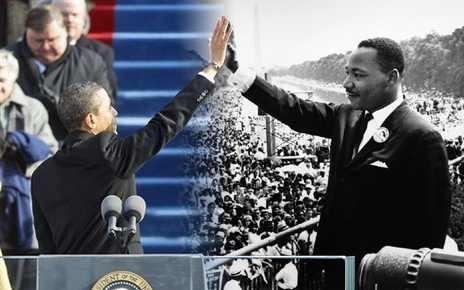Not A Nail-Biter
The 2012 Presidential election was not the nail-biter it was projected to be by the Republican party. They thought it was going to be a landslide in favor of their candidate, Mitt Romney. Clearly, their optimism was based on fantasy rather than cold-hard reality.
America Is At A Crossroads
The reality is that America is at a crossroads. On the one hand, there’s the mentality that led to the election, in 2008, of Barack Obama, the country’s first African-American president. This mind-set is in direct opposition to another mentality that has characterized the American political landscape for a very long time. It’s a conservative ideology that mixes capitalist notions of personal responsibility with Social Darwinism, racial stereotyping and legalistic religious dogma, into a political agenda that was popular in the pre-civil rights era. In other words, it’s an ideology, a political philosophy that, historically, divided the country, instead of uniting it. It’s the Republican agenda.
Three Entrenched Problems in American Society
Dr. Jillian Jimenez, a renown social scientist, argues in her book, Social Policy and Social Change:Toward the Creation of Social and Economic Justice, that social problems in America stem from the intersection of three factors that are difficult to refute.
In their efforts to address the various problems facing our nation, the Republican party seems to have embraced, rather than distanced themselves from these realities that, as Dr. Jimenez convincingly demonstrates, contribute to our problems. I believe their refusal to face these realities, led to their defeat in the 2012 Presidential election.
According to Dr. Jimenez, these factors are, first: deeply entrenched ideologies, such as individualism, (alternatively known as personal responsibility or pulling oneself up by one’s own bootstraps). Second, the free market economic structure in the U. S. which requires the presence of a permanent underclass that is also permanently undereducated and underemployed. Third, the legacy of discrimination against various ethnic groups, is a shameful but undeniable part of our collective history as a nation.
(Jimenez, 2010, Sage Publications)
We’ve Come A Long Way, Baby!
Taken together, these realities outlined by Dr. Jimenez, inform the current Republican political philosophy. The problem is the nation has evolved. The Human Genome Project has clearly demonstrated that there are more things that unite us as human beings, than that distinguish us. There is no place for racism and discrimination in America any more. It serves no useful purpose .
Rather than promoting fear with the same old claims that any changes to the economic status quo will turn us into a socialist country, we need to look at ways to modify existing economic policies so they provide realistic opportunities for all Americans to meet their basic needs. The free market economy is a misnomer. It is neither free,nor effective, in resolving the country’s problems with unemployment, health care, or our rapidly expanding elder population. And the democratic ideal of freedom and equality for all that gave birth to the nation in the first place, still has the power to unite us.
Obama’s Election Was Still A Decisive Victory
President Obama’s re-election was not by a landslide, but it was still a decisive victory. Every vote for the Democrats was a vote in favor of what’s good, positive and worth fighting for in America. The Republican party would do well to reconsider its basic philosophy.
(c) V. Stanley 2012





